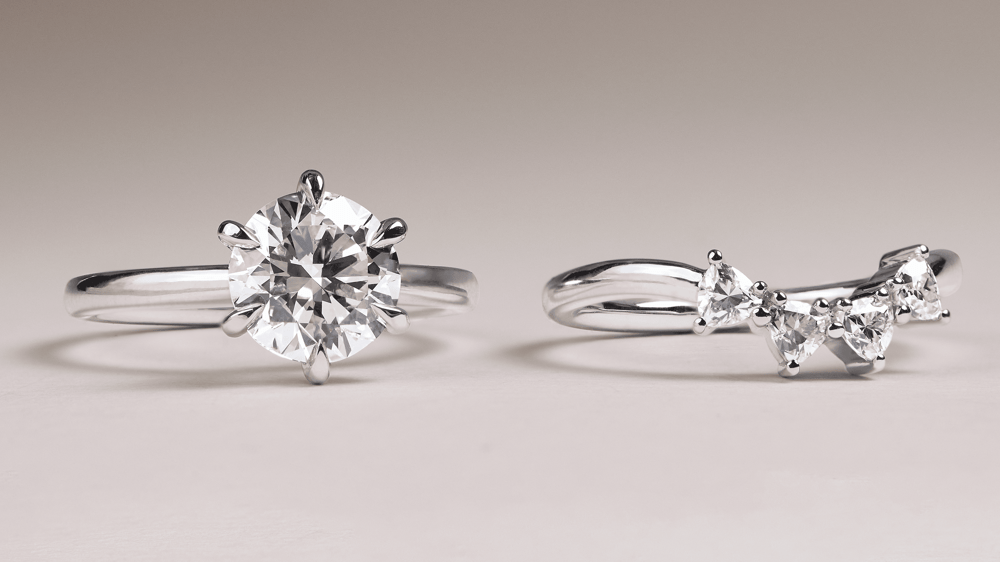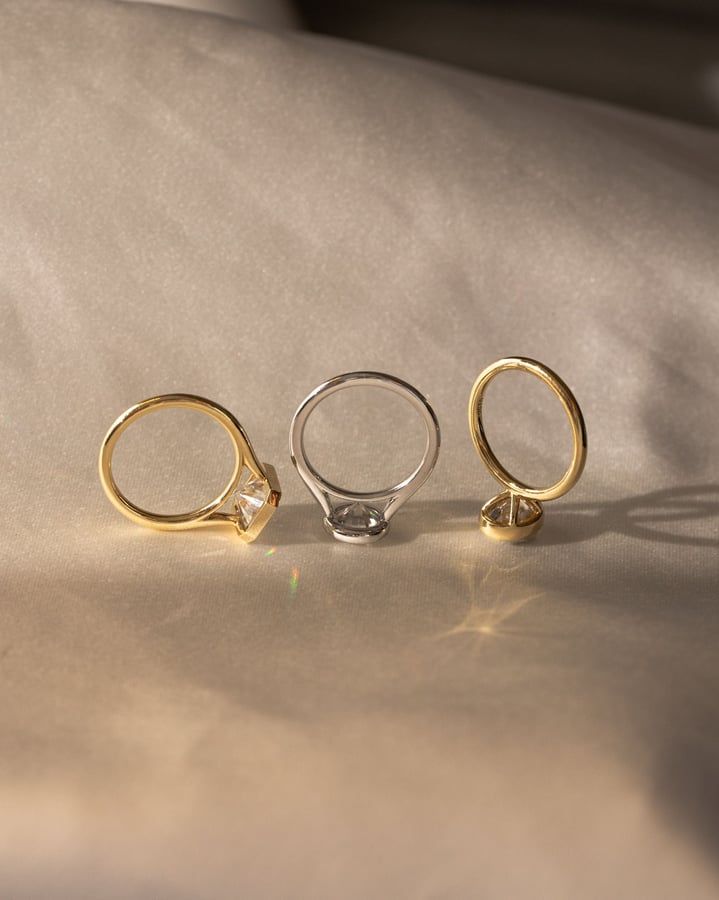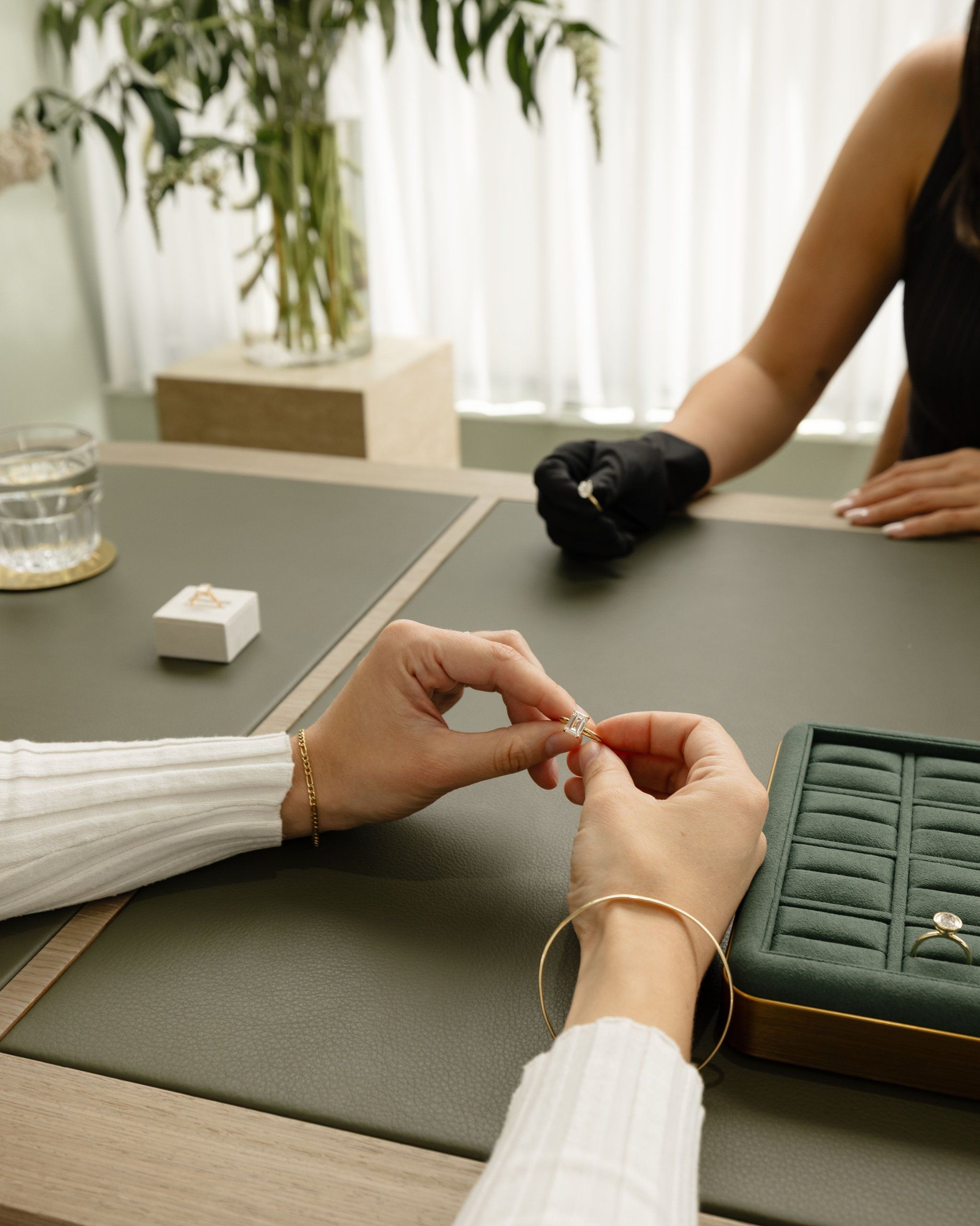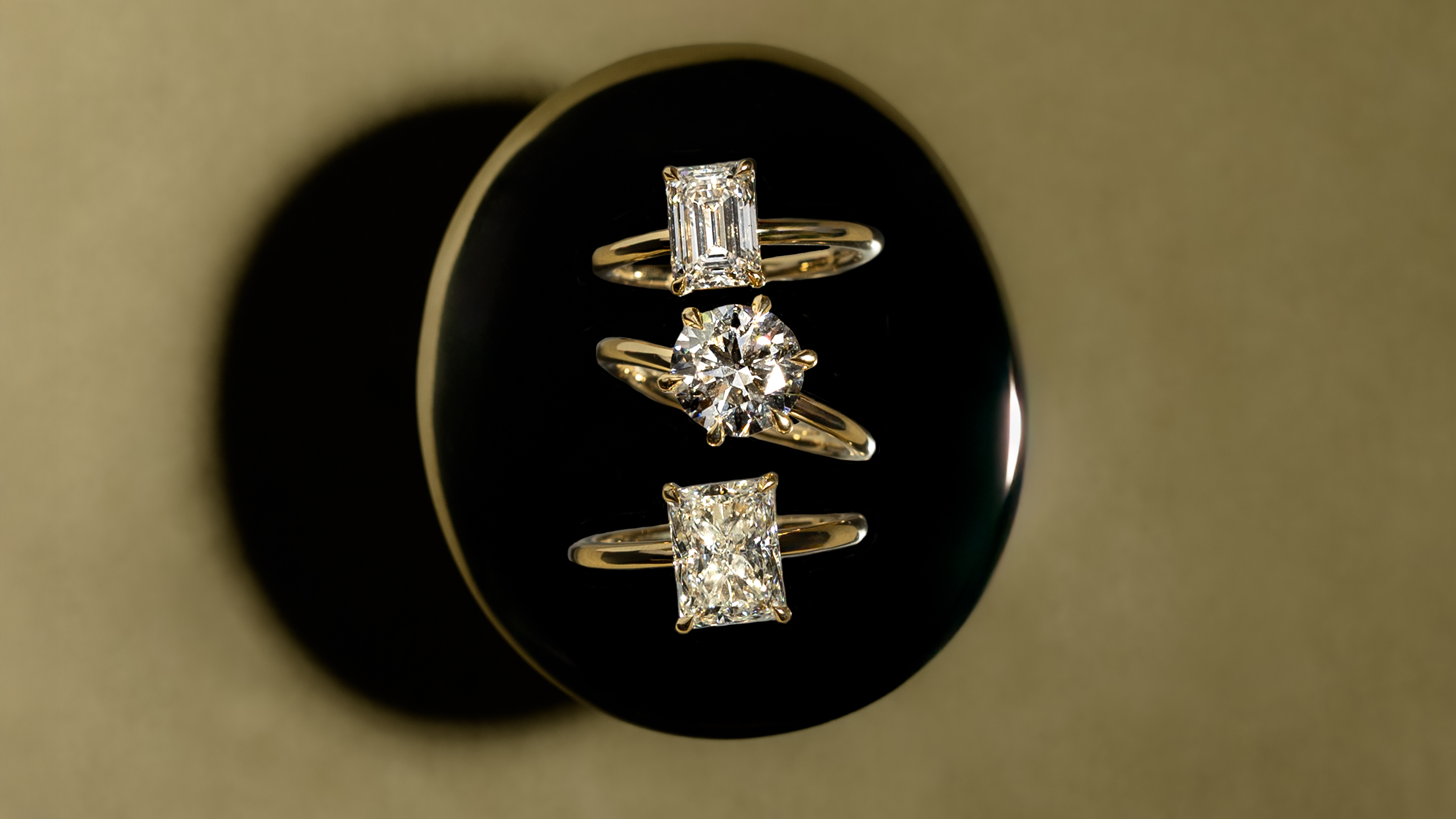
For many couples, the engagement ring is one of the most important purchases they will ever make. It is a symbol of love and commitment, and it should be chosen with care. Not only do you have to decide whether you want a lab grown diamond or a moissanite engagement ring, but you also need to pick a metal for it that will stand the test of time. Here at Cullen Jewellery, we specialise in lab grown diamond and moissanite engagement rings. When it comes to metals, while there are a lot of different options to choose from, two of the most popular are platinum and white gold. Platinum is the hardest precious metal and is naturally very white. Contrarily, white gold doesn't exist naturally and is a mixture of yellow gold and other white metal alloys. That mixture initially results in a dull grey colour, needing regular rhodium plating to become the bright, shiny white that couples desire. For us, if your choice is between platinum and white gold, we recommend platinum if you want something that will last a lifetime. Here are four reasons why:
Purity
While white gold is a trendy choice, platinum has gained popularity due to its purity. Platinum rings are typically made with 95% pure platinum, whereas 14k white gold rings only contain 58% gold and 18k white gold rings only contain 75% gold. As a result, platinum rings have a brighter white colour and are less likely to fade over time. Contrary to how white gold gets duller, platinum improves with age. It develops a natural patina that gives it an antique look, so your engagement ring will only look more beautiful as time goes on.
Durability
Many people don't realise that platinum is more durable than white gold. White gold is an alloy of gold and other metals, such as silver and palladium. Over time, these metals can wear away, causing the jewellery to lose its lustre. Platinum, on the other hand, is a single-element metal resistant to wear and tear. Platinum also has a higher density than gold, meaning it is less likely to be scratched or dented. Conveniently, because it's so strong, it can more securely hold diamonds and other gemstones in place. As a result, platinum is the perfect choice for those who want their jewellery to stand the test of time.
Hypoallergenic
If you're looking for a hypoallergenic metal for your ring, Platinum is an excellent choice to maximise your comfort. Unlike other metals, platinum is not susceptible to corrosion and is not reactive to body chemistry. As a result, it is much less likely to cause a reaction in people with sensitive skin. Conversely, white gold sometimes contains nickel and certain trace amounts of impurities that can trigger allergic reactions.
Sustainability
Platinum is often seen as a luxurious metal used in high-end jewellery and watches because it is more exclusive than gold — while around 3,300 tons of gold are mined annually, only 190 tons of platinum is extracted. However, platinum has several properties that make it more sustainable than other precious metals. For example, platinum is more durable and scratch-resistant than white gold, meaning that it does not need to be replaced as often. Contrarily, white gold will eventually need to be re-plated with rhodium to maintain its bright white colour. Platinum is also more resistant to tarnishing, meaning fewer harsh chemicals are required to keep it clean.
As you can see, there are many good reasons to choose platinum over white gold for your lab grown diamond or moissanite engagement ring. Indeed, platinum is more pure, durable, hypoallergenic, and sustainable. Accordingly, platinum is the way to go if you're looking for an engagement ring that will last a lifetime.


